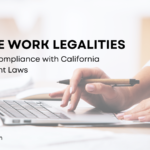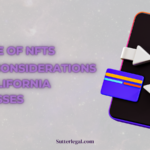By Sutter Law, a San Francisco Business Law Firm
Secondary Markets for Stock – SEC Rule 144
Exemptions from Liquidity Limitations For Non-Affiliates (outside investors)
When an Angel Investor contributes her venture capital to San Francisco start-up companies, she most likely receives restricted securities (securities sales and offers that have not been registered with the SEC) in exchange, for a private sale with the start-up. Section 5 of the Securities Act of 1993 states that all securities offer and sold must be registered with the SEC, or be exempt from registration. So, if the investor decides to sell her restricted securities, later on, her options are limited. So what is an investor to do?
Rule 144 is one of several exemptions from the Section 5 registration requirement, which enables investors to resell restricted securities to the public. Technically, if an investor qualifies for the exemption, Rule 144(b) protects her from being labeled as an “underwriter” so that she may be free to resell restricted securities to the public. So how does a San Francisco Start-up Investor (Angel Investor) qualify for exemption under Rule 144? The requirements are based on whether the individual selling the security is a Control Person or a Non-Control Person.
Holding Period
Rule 144(d) states that investors must hold their purchased restricted securities for a specified period of time before they can resell. The length of time depends on whether or not the company whose security you’ve purchased must report under the Securities Exchange Act of 1934. If the company is such a “Reporting Company,” the increased transparency resulting from this obligation provides more leeway for the investor in the form of a shorter holding period – six months. (To qualify as a “reporting” company, the issuer of the securities must be, and must have been for at least 90 days prior to the sale, subject to the reporting requirements of section 13 or 15(d) of the Securities Act of 1934.) If the company is not obligated to report to the SEC under the ’34 Act, then the investor must hold the security for at least one year. If you purchased restricted securities from another non-affiliate, you can tack on that non-affiliated’s holding period to your holding period.
Current Public Information
Rule 144(c) states that there must be “adequate current information about the issuing company that is publicly available before the sale can be made.” This has obvious roots in the strong public policy need to protect future investors through the dissemination and availability of relevant financial information regarding the issuer. As with the Holding period, there are distinctions here between reporting and non-reporting companies.
Conclusion
When buying startup securities always take a long-term approach. However, if you need to sell, there are exits. It is always recommended to speak to a Business Attorney before selling securities. For a free consultation reach out to Sutter Law to speak to a professional business attorney.






